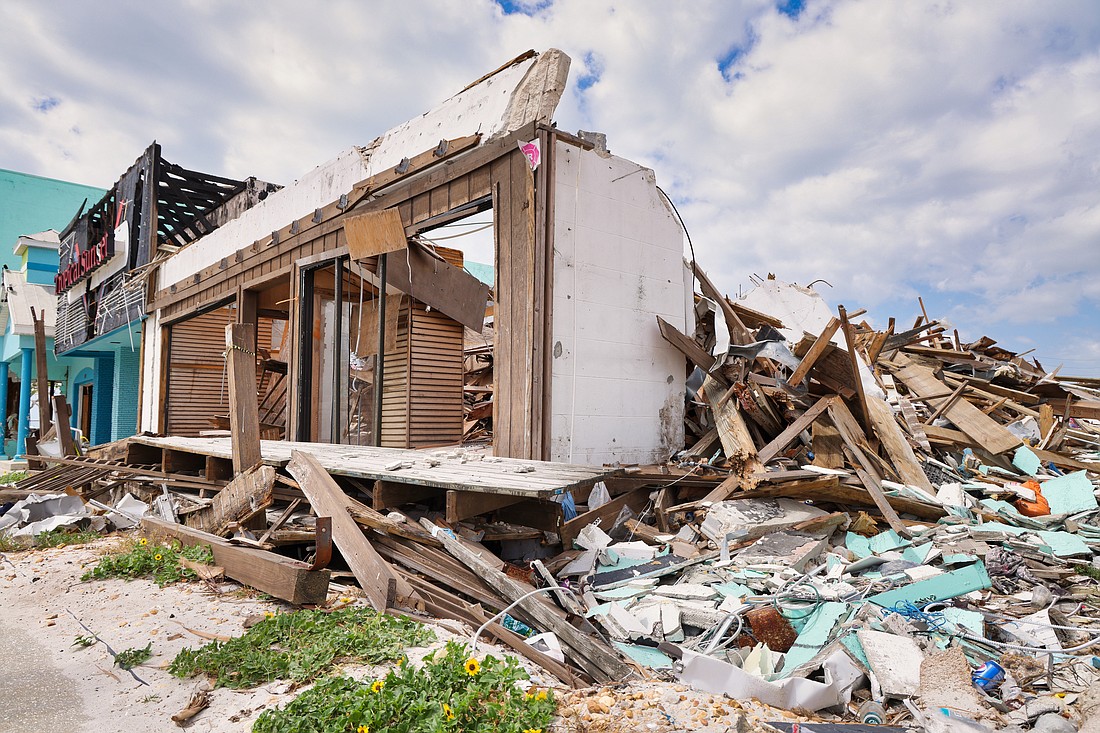- July 26, 2024
-
-
Loading

Loading

While most of the focus on Florida’s troubles with property insurance has been on homeowners, commercial property owners are dealing with many of the same issues and it’s leading some to consider self-insuring their properties.
The practice may be a solution to a complicated and expensive problem. But there is a concern it could lead to trouble down the road, particularly if a storm similar to Hurricane Ian were to strike the state again.
The fear is that commercial property owners who can’t afford skyrocketing premiums and chose to self-insure will be unable to afford the cost of clean-up and rebuilding. This scenario, which may be more likely than some would hope, could create trouble not only for the property owner but also their tenants whose belongings or livelihood get wiped away.
“Most do not understand that if those that can self-insure do, it will create a potential catastrophe in the state,” says Barry Seidel, president and founder of the commercial real estate brokerage American Property Group of Sarasota.
Self-insurance is the act of taking on the risk for damages to a property yourself rather than taking on a traditional insurance policy. Not every property owner can do it, of course. Mortgage companies are highly likely to require borrowers carry traditional policies and some contracts with vendors will stipulate a property has to be insured to protect goods stored on site.
For those who are unencumbered by requirements, though, self-insuring is an attractive option — especially in a volatile property insurance market like the current one in Florida, where the cost of policies continue to rise and the demand put on property owners to qualify increase as well.
Jeffrey Dervech, president of the Tampa commercial real estate firm Dervech Real Estate, says insurance companies are getting more stringent in their requirements before writing new policies or renewing existing ones, including forcing property owners to replace roofs that in some cases are still in good shape. This is coupled with major cost increases that can sometimes double from the previous year.
Seidel knows the problem from both sides. Along with selling insurance, he owns a 5,000-square-foot restaurant building in Sarasota. His premium last year, he says, was $10,000, this year its $32,000. If that weren’t enough, the insurance company is asking that he replace the roof — which would cost him $74,000.
“It's the Wild Wild West,” says Dervech. “You do what you can, and you try and work with your agents, but they're busy, too, they're putting out fires, too. It's absolutely terrible.”
That sentiment is not surprising to anyone paying the slightest bit of attention to Florida’s troubled property insurance marketplace, where carriers are leaving in droves and the state-run Citizen Property Insurance Corp. is taking on more and more of the burden.
Given the turmoil, it shouldn’t be surprising property owners are considering avoiding the high costs and taking the risks on themselves.
But in the event of a catastrophe, whether that be a fire or a hurricane, how good of an idea self-insuring is may depend on who the property owner is and what their intentions are.
A company that owns malls or an investor with 60 properties leased to a national chain may have the financial wherewithal to withstand a disaster that strikes one, or a dozen, of its properties. For them, self-insuring is likely a financial calculation, a bet that if the worst does happen, they have the capital to ride out closures and rebuild or even sell the land.
But what about the individual investor with just a few properties, or one, who’s already struggling to pay their premiums and whose tenants are locked in for the long term? That owner is unlikely to be able to survive a blow like a hurricane or the wind and flooding it brings. Especially given that if their buildings are destroyed the tenants they depend on for revenue are gone.
“You've got to two extremes, right?” says Gregory Marholin, president of RescomX Insurance Solutions in St. Petersburg. “Someone who can truly afford to do it, and someone who's really uninsured because they can't afford the costs.”
And that is the big fear, that in the event of another Ian-like storm, too many of the people choosing self-insurance because they can’t afford the costs of rising premiums are going to create a problem for taxpayers and their communities.
The solution to the problem is to reign in insurance costs. Of course, that has proven to be complicated and time-consuming.
Florida has passed reforms in the past two legislative sessions and a special session last year aimed at curbing the number of lawsuits — and the fees attorneys can collect — which are blamed for many of the state’s insurance problems. But the impact has been slow to be felt by many businesses.
Meanwhile, insurance carriers continue to stop writing policies in the state because of the fear hurricanes will continue to get stronger and do more damage. And the carriers that stay are raising rates — significantly.
For individual property owners trying to make a living, though, macro issues are not driving their decisions today. Their primary concern is protecting their livelihoods. And if that means some will gamble their future by self-insuring, even if it turns out poorly for them, and others, it’s a chance they will take.
And, in the end, says Dervech, a property owner who decides to self-insure is not striking a Faustian bargain, their reward is not riches but survival. Maybe that survival is short term, but nevertheless it is survival.
“Insurance is not guaranteed. That, I think, is the headline,” he says. “Insurance is not guaranteed. And it is hard to get ample insurance. It's all about mitigating risks.”
(This story was updated to reflect the industry Barry Seidel works in and the information on the status of the roof of the building he owns.)